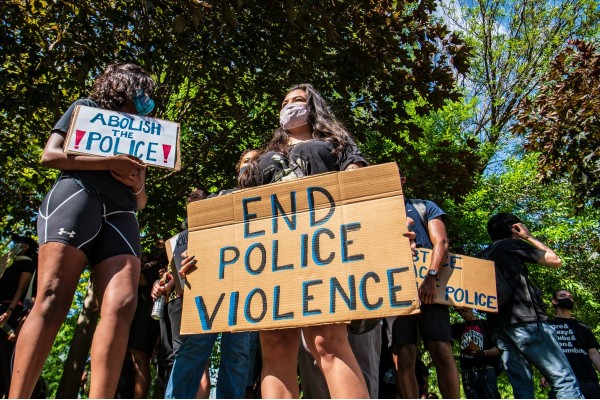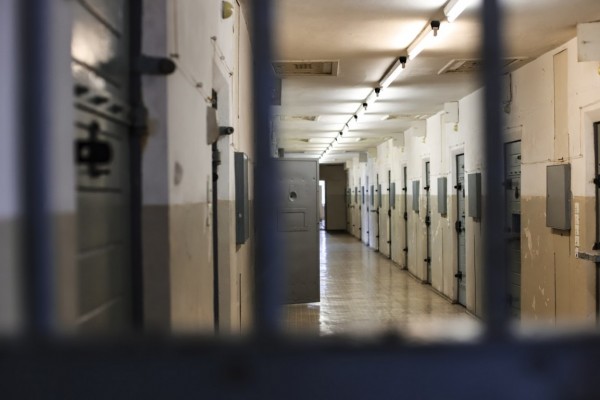-

Filibustering death-dealing ableism
Despite dedicated organizing by the disability justice community, Bill C-7, which expanded “medical assistance in dying” to people whose death is not “reasonably foreseeable,” became law on March 17, 2021. CD spoke with Catherine Frazee and Gabrielle Peters about the meaning of C-7, the implicit ableism of pro-MAiD narratives, and the involvement by the left in disability justice.
-

In an era of climate collapse, Canada is doubling down on military spending
The latest federal budget is out and despite all the media bluster about new progressive housing policy—which consists mostly of a new tax-free savings account for home buyers, an “accelerator fund” for municipalities to incentivize gentrification, and meager support for Indigenous housing—it should be understood as a clear entrenchment of Canada’s position as a global capitalist, colonial, and imperialist power.
-

Fighting for transit in a world on fire
Conditions are dire, but transit riders and workers continue to fight for change. Canadian Dimension spoke with two organizers with TTCriders about their current campaigns, organizing during the pandemic, the relationship between transit politics and climate justice, and advice for people who want to get involved in transit organizing in their own communities.
-

Making the world big enough for all of us: a review of Max Ajl’s ‘A People’s Green New Deal’
In his new book, A People’s Green New Deal, Max Ajl dismantles ruling class and ostensibly progressive visions for a Green New Deal, contrasting these settler futures with revolutionary alternatives grounded in agroecology, anti-imperialism, and Indigenous self-determination. In doing so, writes James, Wilt, Ajl demonstrates these alternatives aren’t utopian solutions but are already very much in motion.
-

How to blow up a movement: Andreas Malm’s new book dreams of sabotage but ignores consequences
Andreas Malm’s latest book, How to Blow Up a Pipeline—his second in less than six months from Verso—is a call for rapid escalation by the global climate movement into the realm of sabotage and property destruction. Yet Malm spends no time at all in this text on the very real threats of policing, surveillance, or incarceration. As James Wilt explains, this is an astonishing abdication of responsibility.
-

How inquests into police violence entrench the oppressive institutions of settler colonial society
The results of inquests and inquiries into police violence often end up excusing and entrenching oppressive institutions. Worse still, policymakers simply ignore their recommendations completely. Canadian Dimension spoke with Sherene H. Razack, Distinguished Professor in Women’s Studies at the University of California at Los Angeles, about the function of inquests and inquiries in a settler colonial society.
-

Who does Winnipeg’s city council work for, anyway?
The City of Winnipeg’s preliminary budget for 2021 was tabled on November 27. It is the latest confirmation that council is not interested in listening to community demands to defund the police and reallocate resources to life-sustaining services. We take this opportunity now to not only hold our elected civic officials accountable for their actions, but also to restate our vision for a future without police.
-

Manitoba’s new ‘critical infrastructure’ bill will try to suppress protest and curb Indigenous sovereignty
Amidst the ongoing chaos of COVID-19, Manitoba’s Progressive Conservatives are attempting to ram through a bill that will criminalize protests at so-called “critical infrastructure” sites such as roads and railways. Canadian Dimension spoke with Mike Bagamery, an organizer with the Manitoba Energy Justice Coalition (MEJC) about the province’s proposed bill and how we can fight back against it.
-

Andreas Malm’s new pamphlet on climate, corona, and communism fails to ignite
Unfortunately, Andreas Malm’s entry in Verso’s pamphlet series—Corona, Climate, Chronic Emergency: War Communism in the Twenty-First Century—reads as rushed and theoretically underdeveloped, spending more time taking shots at other leftists than fleshing out what would be required to implement what he calls “war communism” (which, as it turns out, Malm doesn’t really believe in at all).
-

‘They won’t even give him Tylenol’: An interview with the spouse of a COVID-positive prisoner in Manitoba’s Headingley jail
Headingley Correctional Centre, a provincial jail on the western edge of Winnipeg, is among the sites hardest hit by the pandemic. As of Friday, October 30, the jail had 69 confirmed cases—mostly prisoners along with a handful of staff. Canadian Dimension spoke with someone whose husband is incarcerated in Headingley. After a major bout of sickness, he was finally diagnosed with COVID-19.



